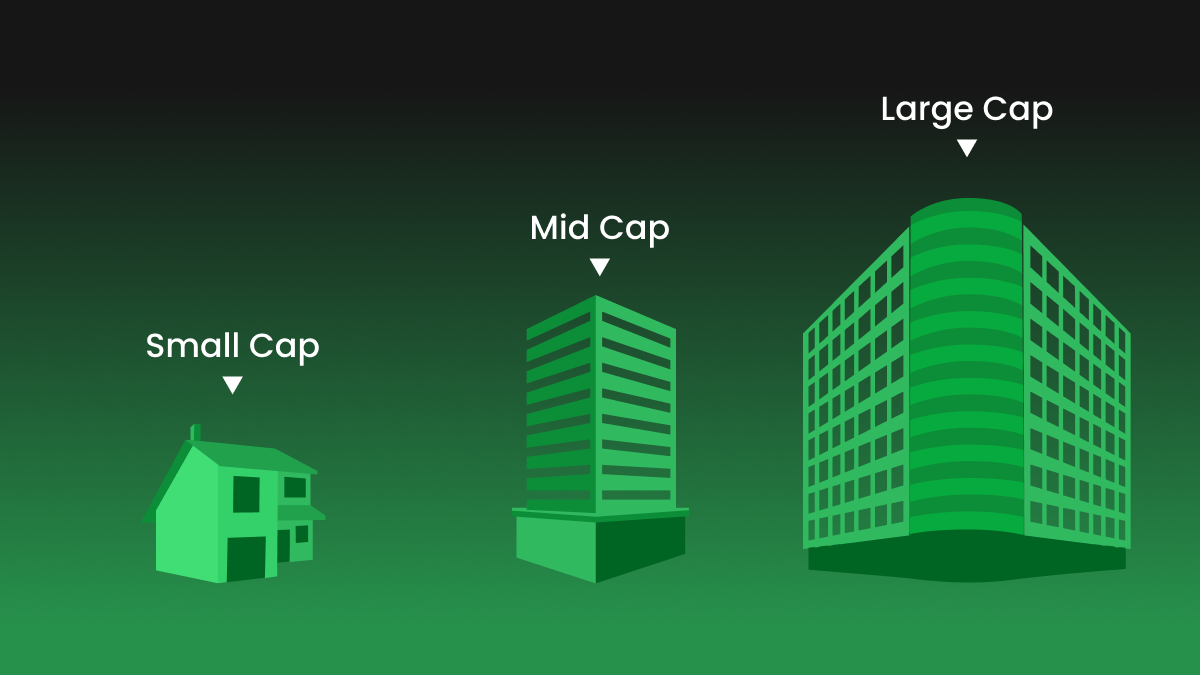This investment option is for you if:
You want to add some small companies to your portfolio (larger companies tend to dominate the markets and get all the investor attention).
You are an experienced investor looking to diversify your portfolio further, but some fund managers close small-cap funds to new investors.
REIT funds
REIT stands for real estate investment trust. A REIT is an organization that owns and manages real estate that produces income. The income generated by leasing the real estate is used to pay dividends to its investors.
REIT funds (exchange-traded funds) consist of REIT securities and let investors tap into the real estate market without purchasing an apartment or building. You can choose to invest in a REIT fund, the same as you’d invest in an individual stock.
How much money do you need?
You can buy your share of a REIT fund via any broker and enjoy the advantages of investing in real estate without all the complexities of being a landlord.
This investment option is for you if:
You believe in investing in real estate but don’t want to purchase a physical object and get involved in renting or leasing relationships.
You want to add further diversification to your portfolio as REIT funds combine multiple securities of real estate companies.
REIT funds may suffer significantly during a financial crisis, so you should monitor the news and follow critical global developments.
S&P 500 index funds
An index fund is a popular investment option. An index is a list of companies (securities), and a fund is the amount of money allocated for some purpose. Generally, an index fund combines multiple stocks and adds an extra layer of diversification to your portfolio. Index funds allow an investor to tap into stock trading without the complexities of selecting individual stocks and balancing your portfolio. This makes index funds one of the best investments available now.
The S&P 500 is one of the most popular index funds. It is a list of the largest companies in the United States. When you invest in the S&P 500, you buy shares in all of the index’s companies.
The fund grows or declines in value along with the index itself, which is generally considered an indicator of the overall health of the US economy. Unlike a regular stock fund, which professionals build for their clients, the S&P 500 contains specific securities that no broker can modify.
S&P 500 tends to be less volatile than actively managed funds that try to beat the market with their revenue performance. You can buy index funds, including the S&P 500, from fund providers or online brokers like FBS.
This investment option is for you if:
You don’t want to investigate and track the performance of individual stocks.
You want steady income growth in the long run.
You want to pay lower broker fees (the S&P 500 has lower management fees than actively managed funds).
You want to enjoy higher returns compared to more conservative investment options.
You want to stick to a less volatile investment option.
Nasdaq-100 index funds
NASDAQ-100 includes stocks of the leading non-financial companies. NASDAQ has traditionally been an index focusing on technology companies, but it now lists the best investments in technology, consumer services, and healthcare. NASDAQ is considered to represent innovation and includes stocks of the best-known technology companies, such as Apple, Google, Intel, and Tesla.
The securities of technology giants may grow or drop rapidly, so NASDAQ is known for its day-to-day volatility. This makes it very attractive to traders who open short-term positions looking for a quick profit.
How much money do you need?
If you trade contracts for difference with a broker like FBS, you can open positions of any size and predict if NASDAQ will grow or drop. You can also use leverage to increase your potential earnings from a position, even if you deposit only a small amount. This means you don’t need any specific amount to trade NASDAQ.
This investment option is for you if:
Remember that using leverage when opening your positions for NASDAQ-100 increases both your potential profit and your risks.
Rental housing
Some people prefer to stick to traditional forms of investing, such as buying property for rent. There are two obvious benefits to this approach:
You will have an income stream from lending your apartment, a house, or a building.
Real estate tends to become more expensive with time (unless we face some crisis or recession period).
You can choose any real estate object as an investment property — an apartment, a vacation house, or a regular family house. That means you can select a property that will work best for you as an investment object, irrespective of your lifestyle or personal preferences.
Some choose to invest in real estate even when they don’t have the money to afford an apartment or a house. Even if they only have enough money for a down payment, some choose to buy it, rent it out, and pay the mortgage with rental payments. When the mortgage term is over, you will have a real estate object at your disposal. You can sell it and invest the money in something new, or keep renting it out and getting passive income. However, if you want to finance your rental property with a mortgage loan, you need to remember the requirements may be stricter for investors as opposed to applications for primary residence mortgages.
How much money do you need?
Naturally, you need enough money to buy a real estate object in full or to pay the down payment for a mortgage. You will also need to pay the mortgage for the periods when you don’t have any tenants (at least during repair or maintenance).
This investment option is for you if:
You are prepared to be deeply involved in managing your investment: decorate and repair your apartment or house, handle the entire landlord and tenant relationship, etc. Naturally, real estate specialists can help you with all or some of these activities, but paying for their services will make the rental housing investment much less appealing.
You don’t mind fixing a leaky faucet, occasionally finding a plumbing specialist promptly, or facing an emergency such as roof damage or flood. That means you want to be a landlord, not just an investor.
You are a conservative person willing to stick to traditional investment strategies.
When buying a rental property, you must consider many factors, such as property taxes, location, schools, parks, coffee shops nearby, crime rate, and public transportation availability.
What to consider before you start investing

Now that you’ve read where to invest money to get good returns, you are ready to start investing. However, before you dive in, you may want to spend some more time preparing and considering some essential factors. This preparation stage is vital to your success, so you don’t want to skip it.
A successful investor is someone who has a strategy and meets their goals. Whatever your goals, your success is measured by meeting them. You should review your investments occasionally to see how well you are doing and if you meet your medium or long-term goals. Here are some of the critical factors you should consider before investing.
Time horizon
First, you need to determine your financial goals. Do you want to save money for something specific? Do you need to have a particular amount of money by some date in the future, or do you have some spare cash that you want to grow with time without any specific limitations?
When you answer the questions above, you will better understand what you may want to invest in. As you have noticed, some of the best investments focus on short-term goals only, while others are intended for you to keep the money somewhere for years. In fact, some forms of investment, such as purchasing rental real estate, will require a lengthy research and preparation period before you can earn anything.
Risk tolerance
No matter what investment options you choose for your portfolio, you should always remember that a loss is possible. However, risk levels are different with different investment options. Decide how much you are prepared to lose and build a strategy accordingly.
Professional traders and analysts suggest inexperienced investors have very diversified portfolios with varying stocks, indexes, dividend-paying companies, and undervalued companies. A diversified portfolio will ensure effective risk management.
Your knowledge
You should always think about your level of experience and investing skills before making a decision.


